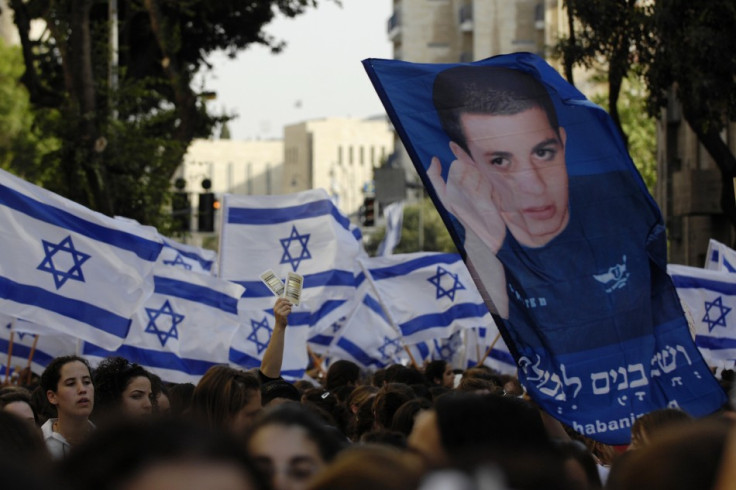Opinion: Hype Surrounding the Release of Gilad Shalit Should not Eclipse Suffering in Gaza

People shouting and cheering, waving flags and banners as they embrace those around them: These are the scenes of celebration in Jerusalem and Gaza following the announcement of a long-awaited prisoner swap deal between Israel and Palestine.
For Hamas, the deal has been a resounding success; and will no doubt be held up by the militant group as proof that their form of armed resistance can produce significant results over and above those of Palestinian Authority leader Mahmoud Abbas.
Abbas has publicly praised the deal, which will see the release of more than 1,000 Palestinians from Israeli prisons -- including 27 women -- but privately he is no doubt aware that Hamas's success may well be his downfall. Last month's semi-failed bid to secure U.N. membership for a Palestinian state has tempered the faith of Palestinian citizens in the West Bank leader, and the legitimacy given to Hamas as a result of this deal may prove divisive for Palestinian popular opinion.
For Israel, the release of Gilad Shalit is a diplomatic coup, even though it comes at a price. The popular hype surrounding Shalit and his family will most likely strengthen the position of Prime Minister Binyamin Netanyahu, even amidst concerns that the release of so many Palestinian prisoners may see a rise in terrorist attacks against the Jewish state.
But away from the cheering crowds and fluttering banners, very little mention has been made of the real victims of the last five years: the residents of Gaza themselves.
While not wanting to discount the suffering of Shalit and his family, the unfortunate fact remains that Israel capitalised on his plight by using it as a justification for their seige of Gaza. Since his capture in 2006, Israel has staged a series of deadly raids against the tiny strip of land on the Mediterranean coast - including Operation Summer Rains in 2006 which left more than 400 Palestinians dead.
Israel has severely limited the import and export of basic food and medical supplies to Gaza, and placed restriction on the movement of its citizens. Not to mention the three-week bombing raid against Hamas in 2008-09 that led to severe human rights violations on both sides and left nearly 2,000 Palestinian dead.
A thousand Palestinian prisoners may seem like a high price to pay for one Israeli soldier, but considering the fact that Gilad Shalit is currently the only Israeli being held on Palestinan soil - compared to 5,554 Palestinans in Israeli prisons (as of 1 June) - the deal begins to make more sense. Since Israel began its military occupation of Palestinian territories following the 1967 war, it has imprisoned over 700,000 Palestinians - or around 20 per cent of the population. Although some of these have been charged of involvement with terrorist activity, many are being held without charge. More than 200 of the detainees are children.
The situation in Israel and Palestine remains as fraught and complex as ever, and it seems unlikely that this new deal - despite the hype surrounding it - will bring the two any closer to peace. The fact that it was Hamas that succeeded in brokering the deal will only muddy the water further, as it cements the inaccurate stereotype that all Palestinians support the militant group, or have similar terrorist inclinations. In the meantime, it is the innocent citizens of Gaza and the West bank whose plight is being ignored by the international community.
© Copyright IBTimes 2025. All rights reserved.




















